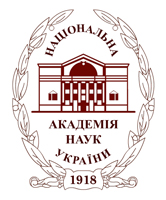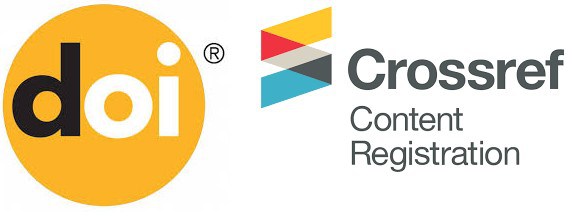 rksu.nbuv.gov.ua
rksu.nbuv.gov.ua
ISSN 2222-4203
Rukopisna ta knižkova spadŝina Ukraïni

The scientific journal “Manuscript and book heritage of Ukraine” complies with the requirements set by the international Committee on Publication Ethics (COPE), which you can read on the COPE website: www.publicationethics.org.
Principles of Editor and Publisher Ethics
When deciding on publication, the editorial board is guided by the reliability of the data submitted and the scientific significance of the work under consideration.
The intellectual content of manuscripts is evaluated regardless of race, gender, sexual orientation, religion, origin, nationality, social status or political views of the authors.
Unpublished data obtained from submitted manuscripts are not used for personal purposes and are not communicated to third parties without the written consent of the author. Information from the submitted manuscripts remains confidential and is not used for personal gain.
The editorial does not publish a manuscript if there is reason to believe that it is a plagiarized one.
The editorial board does not leave unanswered claims related to reviewed manuscripts or published materials, and when a conflict occurs, it takes all necessary measures to restore the infringed rights.
Reviewer's Principles of Ethics
The manuscript received for the review is regarded as a confidential document, which is the intellectual property of the authors and cannot be transferred for familiarisation or discussion to third parties, which do not receive the correspondent mandates from the editorial board.
By providing the manuscript for the review, the authors entrust the reviewers the results of their scientific work and artistic efforts, on which their reputation and career may depend. Divulging of confidential information of the manuscript's review infringes the author's rights. Breach of confidentiality may be possible in case of the statement on the inauthenticity or falsification of the materials. In all other cases, its preservation is mandatory.
The reviewer conducts scientific examination of the author's materials with the aim of objective evaluation of the quality of the provided manuscript of the article and the determination of the level of its correspondence to the scientific, literary and ethical standards. Personal criticism of the author is unacceptable.
The reviewers are forbidden to make copies of manuscripts for personal use. Unpublished data received from the submitted manuscripts are not to be used by the reviewer for personal use.
The reviewer, who in his own opinion, does not possess the sufficient qualification for the evaluation of the manuscript, or if he cannot be objective, including the conflict of interests with the author or the organisation, must notify the editorial board about this peculiarity with the request to exclude him from the reviewing process of the given manuscript.
The author or co-author of the submitted work for the review cannot be its reviewer at the same time. It also concerns research supervisors of applicants for the science degree and/or employees of the department, in which the author works.
In case the reviewer has suspicions regarding plagiarism, authorship or falsification of ata, he must under all circumstances address the editorial board with the proposition of the collective review of the author's article.
The reviewer cannot accept manuscript for the review provided that there is conflict of interests caused by competition, collaboration or other relationships with any authors or organisations, connected to the manuscript.
Principles of Ethics of Scientific Publication Author
The author(s) of the article must provide reliable results of the research. Consistent submission of false or fraudulent data is unacceptable.
The author must ensure that the results of the study, set forth in the manuscript submitted, are completely original. The borrowed data must be given with the obligatory indication of the author and the original source. Excessive borrowings, as well as plagiarism in any form, including nonformalized citations, rephrasing or appropriation of rights to the results of the research of others, are unethical and unacceptable.
The contribution of all persons who have influenced the study process in one way or another should be acknowledged, in particular, reference should be made to the works that were relevant to the research.
The authors should not submit for publishing a manuscript that has previously been submitted to another edition and is currently under consideration, as well as an article already published in another edition.
The co-authors of the article should include all persons who have made a significant contribution to the research. Among co-authors it is unacceptable to indicate persons who did not participate in the study.
If the author finds significant errors or inaccuracies in the article at the stage of its consideration or after its publication, he should as soon as possible inform the editorial staff.




